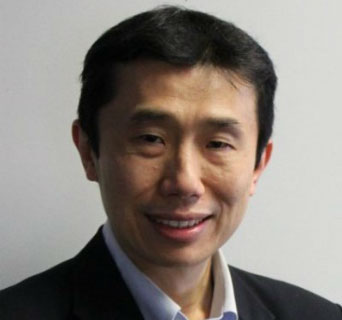The Digital Hub is hosted in Canada at the University of British Columbia (UBC), in collaboration with the University of Alberta (UA) and the Canadian Network for Mood and Anxiety Treatments (CANMAT). Core partners across the Asia-Pacific region support and contribute to the activities of the Digital Hub.
The Asia-Pacific Economic Cooperation (APEC) is a regional economic forum established in 1989 to leverage the growing interdependence of the Asia-Pacific. APEC's 21 members aim to create greater prosperity for the people of the region by promoting balanced, inclusive, sustainable, innovative and secure growth and by accelerating regional economic integration.
- Economic Impact
-
The economic impact of mental health cannot be overstated: recent estimates*Bloom, D.E., Cafiero, E.T., Jané-Llopis, E., Abrahams-Gessel, S., Bloom, L.R., Fathima, S., Feigl, A.B., Gaziano, T., Mowafi, M., Pandya, A., Prettner, K., Rosenberg, L., Seligman, B., Stein, A.Z., & Weinstein, C. (2011). The Global Economic Burden of Noncommunicable Diseases. Geneva: World Economic Forum. put the annual global cost of mental illness at nearly USD 2.5 trillion--just under half the total global expenditures on health. These costs are projected increase to USD 6 trillion by the year 2030. Unlike other major disease groups such as cardiovascular disease and cancer, the majority of this economic burden results not from the direct costs of treatment and care, but rather indirect costs such as lost income from unemployment, lost productivity, and the increased use of social and other health services that results when mental illness is under-diagnosed and under-treated*Insel TR. Assessing the economic costs of serious mental illness. American Journal of Psychiatry. 2008 Jun 1..
In addition to improving the quality of life and well-being of individuals and communities, smart, innovative investments in mental health have the potential to reduce the staggering burden of mental illness, with returns in work productivity, social participation, and lowered health care and other costs. It's clear that failing to invest in mental health costs us all--and that pursuing opportunities for scientific, technological, and social innovations in mental health are critical to ensure healthy and prosperous communities.
- Mission
-
Our mission is to strengthen the mental health and well-being of individuals and communities across the Asia-Pacific in support of sustainable economic growth.
The Digital Hub for Mental Health will foster awareness, share information and experiences, and build capacity and scalability for innovative initiatives across the region.
The Digital Hub will also create and promote multi-stakeholder collaborations and public-private partnerships that strengthen these activities to meet the needs of individual APEC member economies and the people they represent.
- Priorities
-
APEC's approach to the challenges and opportunities in mental health prioritizes multi-sector collaborations and international best practices.
We need to ensure that political leaders, institutions, businesses and the public recognize the importance of strengthened and strategic investment in mental health to support economic growth.
Digital Hub projects are organized around seven Mental Health Focus Areas, common areas of need and cooperation in which innovative projects and partnerships have the greatest potential for critical impact. Focus Areas were identified by APEC member economies through assessment of their national priorities in mental health and are summarized in the APEC Report on Strategic Needs in Mental Health.
Download the APEC Report on Strategic Needs in Mental Health
- Endorsements
-
The APEC Digital Hub for Mental Health has the support of the highest level of APEC, having been officially endorsed by Foreign and Trade Ministers in November 2015 as a critical component of the successful implementation of the APEC Roadmap to Promote Mental Wellness in a Healthy Asia-Pacific (2014-2020) (the Roadmap). APEC's strategic plan to address the mental health challenges faced by APEC economies, the Roadmap was officially adopted by APEC Ministers in 2014 and complements the World Health Organization’s Mental Health Action Plan (the WHO Action Plan) and its 2020 timeline.
APEC shares the WHO Action Plan’s vision of a world in which mental health is valued, promoted and protected throughout the life course; mental health disorders are prevented when possible; people with mental illness are free from discrimination and stigma; and all have rapid access to high quality, culturally-appropriate mental health and social care (Quick Care).
APEC recognizes that success in this effort will enable millions of the region’s citizens to improve their overall health while participating fully in society and at work. Falling short of this vision is a threat to the Asia Pacific region’s economic growth, efficiency and sustained prosperity.
Download the APEC Roadmap to Promote Mental Wellness in a Healthy Asia-Pacific (2014-2020)
- Governance
-
The APEC Digital Hub for Mental Health was established under the authority of the APEC Life Sciences Innovation Forum (LSIF) Executive Board. It is guided by a multi-stakeholder Advisory Board and managed by the Executive Team, which includes members of our Steering Committee.
Meet our Executive Team:
Dr. Jill Murphy, PhD, MA

Executive Director, APEC Digital Hub for Mental Health
Research Associate, Department of Psychiatry, University of British ColumbiaDr. Raymond W. Lam, MD

Executive Chair, APEC Digital Hub for Mental Health
Professor, BC Leading Edge Chair in Depression, and Associate Head for Research, Department of Psychiatry, University of British Columbia;
Director, Mood Disorders Centre, Djavad Mowafaghian Centre for Brain Health;
Executive Chair, Canadian Network for Mood and Anxiety Treatments (CANMAT)Dr. Andrew J. Greenshaw, PhD

Scientific Director, APEC Digital Hub for Mental Health
Professor, Department of Psychiatry and Neuroscience and Associate Chair for Research, Department of Psychiatry, University of AlbertaDr. Erin E. Michalak, PhD

Program Director, APEC Digital Hub for Mental Health
Professor, Mood Disorders Centre, Department of Psychiatry, University of British ColumbiaDr. Chee Ng, MD

Steering Committee Member, APEC Digital Hub for Mental Health
Healthscope Chair of Psychiatry and Director of the International Unit, Department of Psychiatry, St. Vincent’s Hospital and the University of Melbourne, AustraliaDr. Arun Ravindran, MD

Steering Committee Member, APEC Digital Hub for Mental Health
Professor and Director of Global Mental Health Affairs and the Office of Fellowship Training, Department of Psychiatry, University of Toronto;
Senior Scientist, Campbell Family Mental Health Research Institute and Psychiatrist, Mood and Anxiety Disorders Division, Centre for Addiction and Mental Health (CAMH)
Board Member, Canadian Network for Mood and Anxiety Treatments (CANMAT)Mr. Phil Upshall

Policy Advisor, APEC Digital Hub for Mental Health
Former National Executive Director, Mood Disorders Society of Canada - Advisory Board
-
The Advisory Board provides key strategic guidance and support for the Digital Hub's activities on behalf of the APEC LSIF Executive Board.
Engaging with a variety of Digital Hub stakeholders and end-users, including representatives from government, academic institutions, industry, and civil society, members of the Advisory Board help to identify, prioritize, and coordinate the Hub's activities to ensure they reflect the needs of individual APEC member economies as well as common, region-wide priorities.
The Advisory Board additionally provides oversight for Hub operations, promotes the Hub's efforts and achievements, and helps to forge new partnerships in the international community.